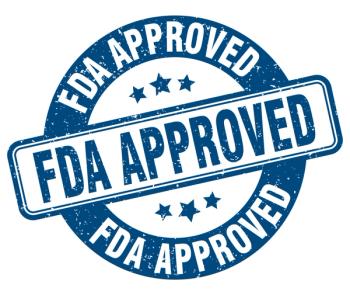
R.Ph.s fight to maintain fees for inhalations drugs
Hoping to ward off what may be a significant cut in 2006 Medicare inhalation therapy dispensing fees, homecare pharmacists are aggressively disputing a recent report from the Office of Inspector General that concluded they are overpaid. They are lobbying Congress and the Centers for Medicare & Medicaid Services to avoid what industry officials fear may be a draconian reduction.
Hoping to ward off what may be a significant cut in 2006 Medicare inhalation therapy dispensing fees, homecare pharmacists are aggressively disputing a recent report from the Office of Inspector General that concluded they are overpaid. They are lobbying Congress and the Centers for Medicare & Medicaid Services to avoid what industry officials fear may be a draconian reduction.
"The report is flawed in several ways, primarily because they failed to study the payment or cost structure for Part B beneficiaries," said Lisa Getson, executive VP of Apria Healthcare in Lake Forest, Calif.
At issue are diametrically opposed views of the extent and value of the services provided by inhalation drug therapy suppliers, including R.Ph.s. Getson is leading the lobbying effort for Apria, the nation's largest provider of home respiratory, infusion, and medical equipment services. The firm is joined in its condemnation of the OIG report by the American Association for Homecare (AAHomecare), an industry trade organization.
Medicare Part B pays for drugs that are necessary for the effective use of covered durable medical equipment (DME). The program covers inhalation drugs because it includes nebulizers, which beneficiaries use in home care settings to administer the drugs. Under the DME benefit, Medicare coverage of nebulizers includes the cost of renting or purchasing the equipment, delivering it to beneficiaries, and educating beneficiaries on its proper use and maintenance. The program pays suppliers for the inhalation drugs used with the nebulizer and a separate drug dispensing fee.
In an August 2005 Notice of Proposed Rulemaking published in the Federal Register, CMS stated that the 2006 dispensing fee for nebulized inhalation drugs would probably be lowered.
In late September, at the request of CMS for a review of the inhalation therapy fee structure, OIG issued a report titled "Review of Services Provided by Inhalation Drug Suppliers." It concluded that "CMS set the interim dispensing fee for inhalation drugs based, in part, on an assumption that beneficiaries receive numerous important services from their drug suppliers. This inspection shows that beneficiaries, on average, receive little service from their inhalation drug suppliers beyond contacting them to ask if they need a drug refill." The report is available at http://
That conclusion is wrong, said Getson and others. AAHomecare and Apria officials point to other studies of services provided by inhalation R.Ph.s that reached different conclusions, including an October 2004 report by the Government Accountability Office (GAO), titled "Appropriate Dispensing Fee Needed for Suppliers of Inhalation Therapy Drugs." That report concluded that inhalation service suppliers reported substantial costs on overnight shipment of drugs, calls to beneficiaries to ask about refills, coordination of refill delivery, and monitoring of beneficiary compliance. The GAO report is available at
A September 2005 report by Muse & Associates, commissioned by AAHomecare, found that the 2005 Medicare reimbursement formula based on average sales price under-reimburses the actual cost of providing two drug therapies by $68.10 per monthly supply.
"There are reliable data that support an increase to the $57 dispensing fee, but absolutely none to support a cut for 2006," said Kay Cox, AAHomecare president and CEO.
According to Apria officials, the OIG report reflected only 18.2% of the services provided by inhalation pharmacists. They fault the OIG methodology for the report's flawed conclusion. "They conducted a paper survey and no on-site inspections," said Getson. "And they failed to cover the cost of services at all."
Newsletter
Pharmacy practice is always changing. Stay ahead of the curve with the Drug Topics newsletter and get the latest drug information, industry trends, and patient care tips.























